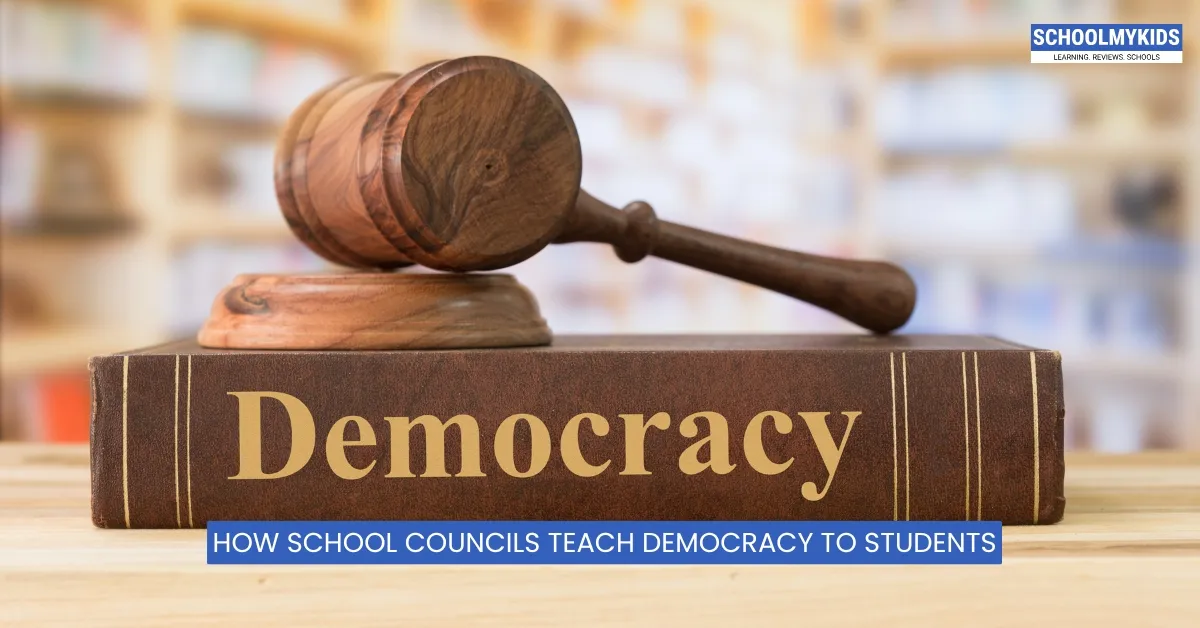School councils provide authentic platforms for students to practice democratic principles, leadership skills, and collaborative decision-making from an early age. These student-led organizations teach practical civics lessons that textbooks cannot replicate, creating engaged citizens who understand democratic processes through direct participation.
Democratic Foundations and Structure
Student councils mirror governmental structures with elected representatives, executive committees, and legislative processes that give students real experience with democratic institutions. Elections feature candidate campaigns, voter registration, debates, and secret ballot voting that simulate adult civic participation.
Constitutional frameworks guide council operations, establishing rules for membership, meeting procedures, and decision-making processes. Students learn to create bylaws, amendment procedures, and conflict resolution mechanisms that govern their organizations. These experiences teach the importance of institutional frameworks in maintaining democratic order.
Committee structures allow specialized focus on issues like academic policies, social events, community service, and school improvement initiatives. Students develop expertise in specific areas while learning to collaborate across different interest groups and constituencies.
Leadership Development and Skills
Council participation develops essential leadership competencies, including public speaking, critical thinking, and consensus building. Students learn to articulate positions clearly, defend ideas with evidence, and modify opinions based on new information or constituent feedback.
Meeting facilitation skills emerge as students take turns leading discussions, managing time constraints, and ensuring equal participation opportunities. They practice parliamentary procedures, agenda setting, and conflict mediation that transfer directly to future professional and civic roles.
Project management becomes crucial as councils implement initiatives requiring planning, resource allocation, timeline management, and progress evaluation. Students learn accountability measures and develop resilience when projects face unexpected challenges or setbacks.
Representation and Constituency Service
Council members learn to represent diverse student interests rather than pursuing personal agendas. They conduct surveys, hold town halls, and maintain regular communication with their constituents to understand community needs and priorities.
Advocacy skills develop as students present proposals to school administrators, negotiate compromises, and build coalitions around shared interests. They learn to research issues thoroughly, prepare persuasive arguments, and accept both victories and defeats gracefully.
Cultural competency grows as students work with peers from different backgrounds, learning to appreciate diverse perspectives and find common ground despite differing opinions or experiences.
Policy Development and Implementation
School councils address real issues affecting student life, including dress codes, technology policies, discipline procedures, and extracurricular programming. Students research policy implications, gather stakeholder input, and propose practical solutions to complex problems.
Budget allocation exercises teach fiscal responsibility as councils manage funds for events, programs, and school improvement projects. Students learn to prioritize competing demands, justify expenditures, and track financial outcomes.
Policy evaluation becomes essential as councils assess the effectiveness of implemented changes and make necessary adjustments. This iterative process teaches the ongoing nature of democratic governance and policy refinement.
Civic Engagement and Community Connection
School councils often extend their influence beyond campus boundaries through community service projects and local government collaboration. Students interact with city councils, attend public meetings, and advocate for youth interests in broader community discussions.
Voter education initiatives help councils promote civic participation among eligible student voters while encouraging younger students to prepare for future civic responsibilities. These programs create cultures of engagement that extend beyond school years.
Partnership development with local organizations teaches students about civic infrastructure and community resources available for addressing social issues and promoting positive change.
Conflict Resolution and Compromise
Democratic decision-making inevitably involves disagreement and compromise, teaching students valuable conflict resolution skills. Council members learn to disagree respectfully while seeking solutions that serve the broader community interest.
Mediation techniques help resolve disputes between different student groups or competing priorities. Students develop emotional intelligence and communication skills essential for maintaining democratic dialogue in challenging situations.
Minority rights protection ensures that less popular viewpoints receive fair consideration and that majority rule doesn't become tyranny. These lessons prove crucial for understanding democratic principles and social justice concepts.
Long-term Democratic Impact
Students who participate in school councils demonstrate higher rates of adult civic participation, including voting, community involvement, and political engagement. They carry democratic values and participatory skills into their careers and communities.
The problem-solving abilities developed through council participation transfer to many life contexts where collaboration, leadership, and systematic thinking prove valuable. These students become more effective employees, community members, and leaders throughout their lives.









Be the first one to comment on this story.